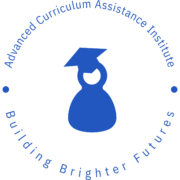In today’s rapidly changing world, the need for children to receive additional academic and personal development support beyond the traditional school environment has become increasingly evident. While schools provide foundational education, they often fall short in addressing the diverse and complex needs of every student. Supplementary programs, such as extra classes and mentorship, are crucial in ensuring that children not only succeed academically but also develop the personal skills needed to navigate the challenges of the modern world.
The Limitations of Traditional Schooling
Traditional schooling is designed to deliver a standardized curriculum to a large group of students, often with limited resources and time. While this approach has its merits, it can lead to several shortcomings. One significant issue is the lack of individualized attention. Research shows that students learn at different paces and have varying learning styles, which traditional classrooms may not adequately address (Tomlinson, 2014). As a result, some students may struggle to keep up, while others may not be sufficiently challenged, leading to disengagement and underachievement.
Moreover, the focus in traditional schools is predominantly on academic subjects, often neglecting the development of essential life skills such as critical thinking, problem-solving, and emotional intelligence. According to a study by the Partnership for 21st Century Skills (2007), employers increasingly value these skills, yet they are often underdeveloped in students who solely rely on traditional schooling. Without these skills, students may find it difficult to adapt to the demands of higher education and the workforce.
The Role of Extra Classes in Academic Success
Extra academic classes provide the personalized attention that many students need to thrive. Small group settings or one-on-one tutoring allow instructors to tailor their teaching methods to the specific needs of each student, thereby enhancing understanding and retention of material. A study conducted by Hattie (2009) on visible learning found that tutoring and targeted intervention programs have a substantial impact on student achievement, particularly for those who are struggling in a traditional classroom setting.
In addition to improving academic performance, extra classes can also help students develop a deeper interest in subjects that may not be fully explored in school. For instance, enrichment programs in areas such as science, technology, engineering, and mathematics (STEM) can ignite a passion for learning and encourage students to pursue careers in these fields (National Research Council, 2012). These programs often include hands-on activities and real-world applications, making learning more engaging and relevant.
The Importance of Mentorship and Personal Development
Beyond academics, mentorship plays a critical role in a child’s personal development. A mentor can provide guidance, support, and a positive role model, helping children navigate the challenges of growing up. According to research by Rhodes (2005), mentoring relationships can significantly improve a child’s self-esteem, social skills, and academic performance. Mentorship also helps students develop important life skills, such as resilience, communication, and leadership, which are not typically taught in traditional school settings.
Programs that offer personal development coaching and mentorship can bridge the gap between academic learning and real-world application. By teaching skills such as public speaking, critical thinking, and emotional intelligence, these programs prepare students to face the challenges of adulthood with confidence. As noted by Heckman and Kautz (2013), non-cognitive skills are as important as cognitive skills in predicting long-term success, making personal development an essential component of a well-rounded education.
Conclusion
While traditional schooling provides a necessary foundation, it is often insufficient in meeting the diverse academic and personal development needs of every student. Extra classes and mentorship programs offer the personalized attention and skill-building opportunities that are crucial for success in today’s world. By investing in these supplementary programs, parents can ensure that their children are not only academically prepared but also equipped with the life skills needed to thrive in the future.

